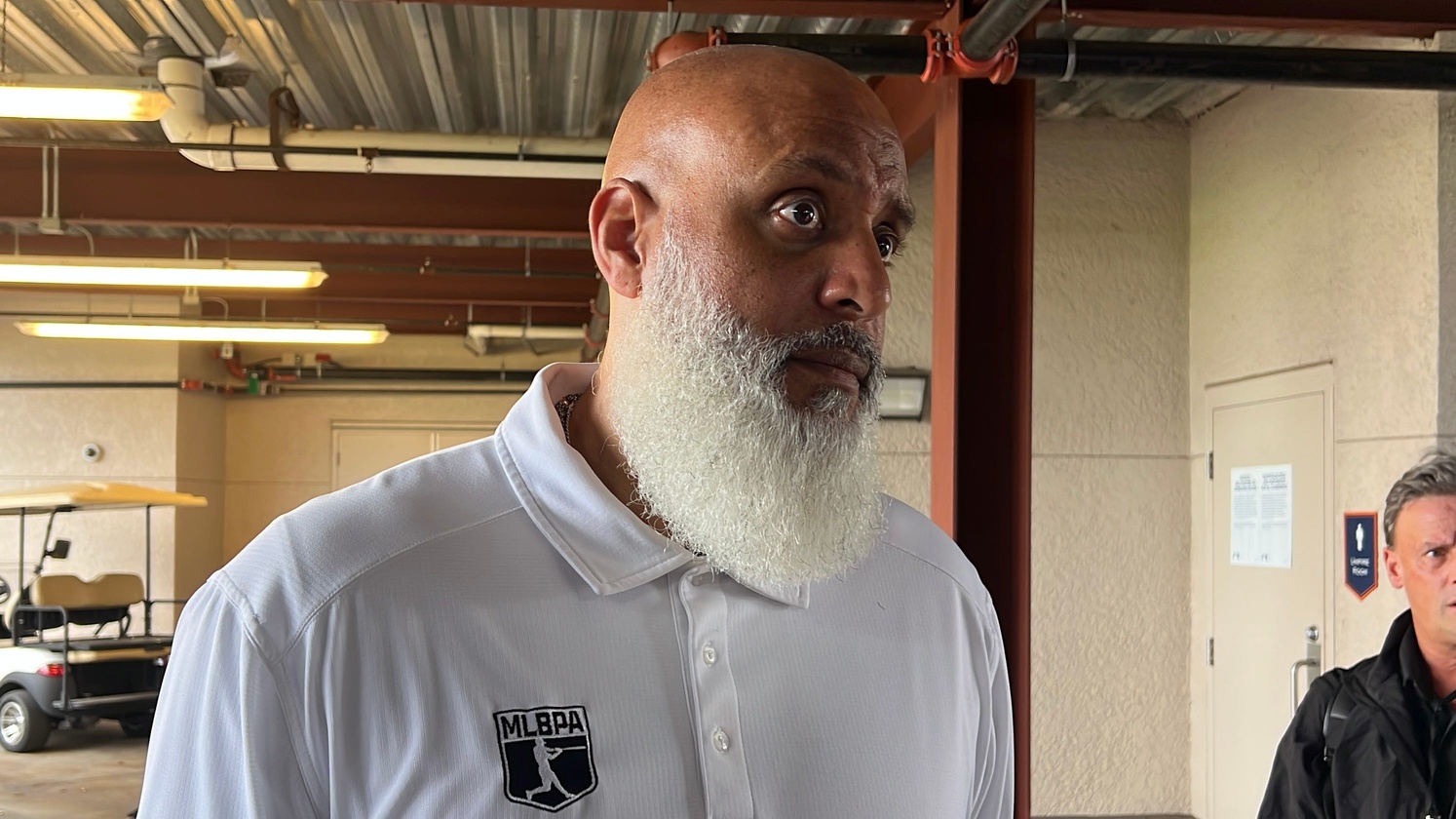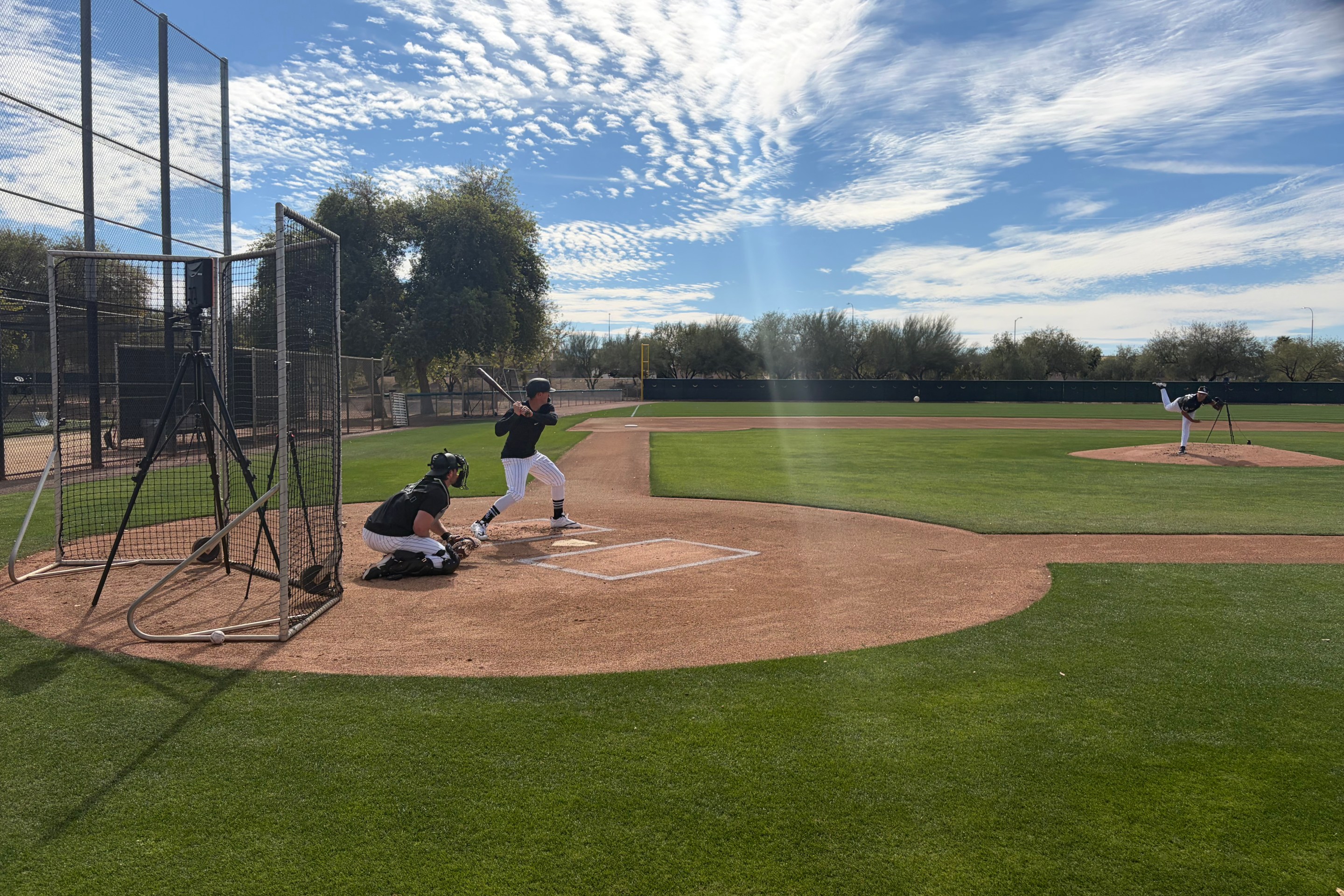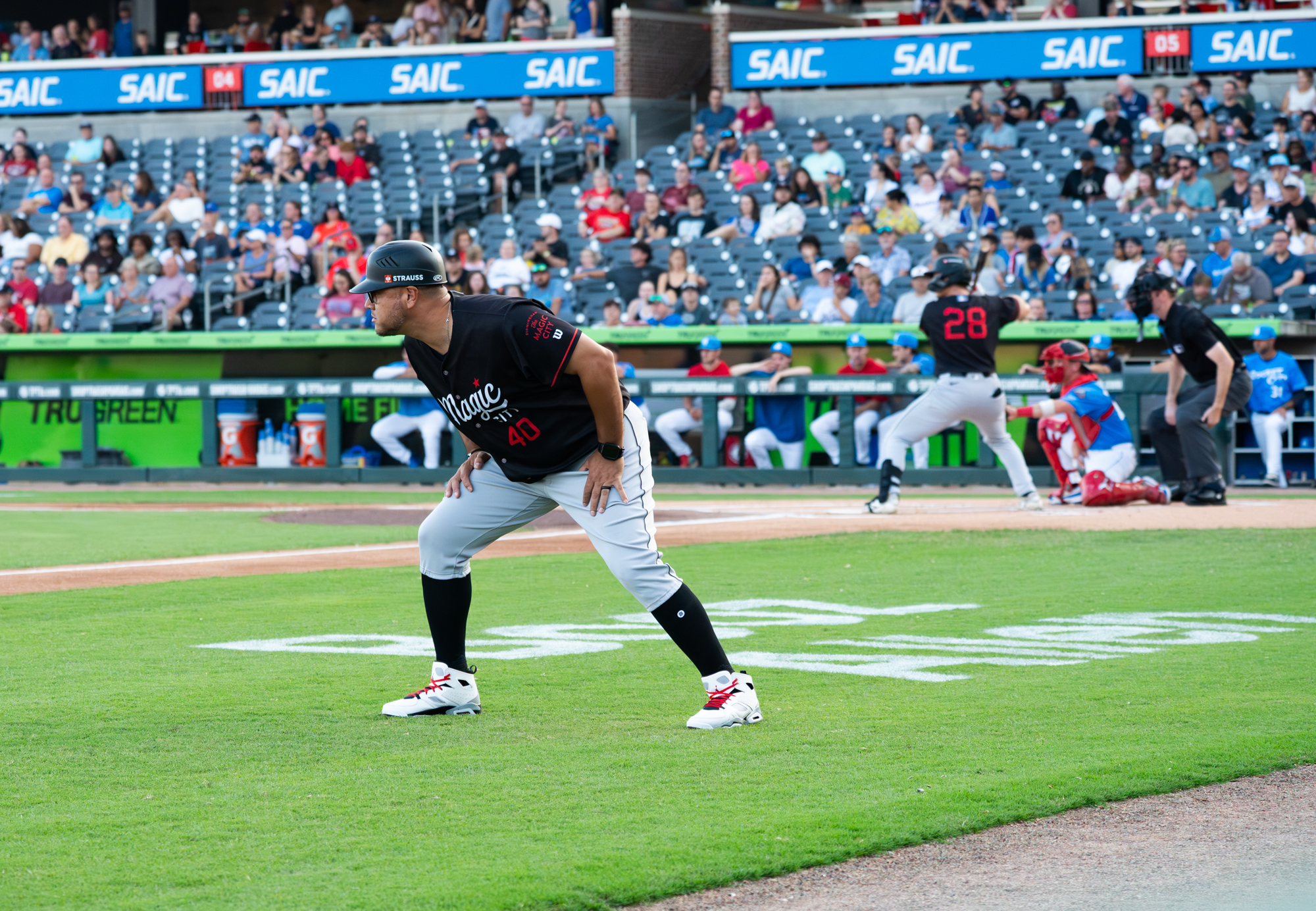Everyone understands that the team innings leader has a value that can outpace their pure stuff, or even their results.
In an occupation defined by injury, pacing the club in innings means they were healthy enough to take the ball, and that they remained enough of a credible option to be repeatedly asked. And so by pacing all White Sox minor league pitchers with 132 innings last season, 24-year-old left-hander Tyler Schweitzer has already shown signs of both qualities early in his career, with a promotion to the Triple-A Charlotte rotation this week putting him on the doorstep of the majors.
"My high school coach, one of them said I had a rubber arm, and some of the guys here say I bounce back pretty quickly, so that's a good compliment to have," Schweitzer said by phone. "Honestly the biggest thing I've noticed is I listen to my arm. Just, 'Dang, I'm really sore today, I'm going to take a day. My arm needs it.'"
Martín Pérez's inflamed left elbow is just the latest in a scourge of injuries to candidates to make starts in Chicago this year that has already taken out Drew Thorpe, Ky Bush, Mason Adams and Juan Carela (who has since re-signed with the White Sox) for the year. With Schweitzer starting the year piggybacking with Grant Taylor in Double-A (but still throwing five innings per outing and preparing like a starter), he'd certainly forgive you for not thinking of him as an option right off the bat.
His reaction to this interview request wasn't too far removed from how he responded to scouts approaching him at Ball State, where he once threw 150 pitches in a conference tournament game.
"A Red Sox scout was talking to me and my first response was 'Are you sure you've got the right guy?'" Schweitzer said. "I wasn't the biggest guy, so velo wasn't really there. So I really pride myself on doing the same thing every time with my mechanics, which led to all my pitches being right around the same exact slot and thinking the same thing over and over again."
But a funny thing happened while Schweitzer has reliably accumulated innings, reps and stacked productive offseasons of adding strength on top of each other after being a below-the-radar fifth round pick: He's gotten better, and he's seen an early stuff jump that's more relevant because it's backed by a reliable track record of strike-throwing.
After two full minor league years of reliably running strikeout rates in the mid-20s, and working in a low-90s velocity band that legally requires him to be described as crafty, Schweitzer touched 96 mph in his last outing in Birmingham. Over two games and 10 innings with the Barons to start the year, Schweitzer struck out 14 and allowed just four hits while sitting 93-95 mph. More than the fastball, it's the boost to his secondaries that might be the most valuable long-term.
"My curveball has been my bread and butter for most of my life, but early on in the season, my slider has taken some big strides," Schweitzer said. "The velo has ticked up four miles per hour and the movement on it has been a lot sharper and better. The way it feels in my hands, I just feel like I know where it's going at all times. The curveball I'm also throwing harder and a power curveball is better. The Clayton Kershaw-style curveball is kind of dying out. A 72 mph pitch isn't a great pitch anymore, so we have to adapt."
The natural whippiness of Schweitzer's left arm reveals itself with his long drawback motion that keeps the ball hidden behind his head for an extended period of time before snapping through a high three-quarters slot. The extra deception of the motion has spurred the White Sox to prod Schweitzer to simply stick with his delivery, and the lefty has happily complied.
A natural supinator, Schweitzer talks about accumulating a feel for pre-setting the ball in his glove and seamlessly toggling between his intent to turn over a low-80 curve, ripping a mid-80s slider, cutting his fastball to work inside to a righty, or pulling straight down to backspin a four-seamer. Accordingly, the White Sox have given Schweitzer a mid-80s seam-effects changeup that he professes to still be working on the finer details of, but has also induced 10 whiffs on 21 swings so far while adding a crucial element of arm side movement to his game.
The larger suite of options has aided Schweitzer's embrace of 'attack early, expand late' approach to working in the strike zone many Sox pitchers have espoused this year. But Schweitzer says the best thing the org has added to his game is reminding him that he shouldn't be surprised by the attention is starting to draw.
"The biggest thing they taught me was conviction in every pitch," Schweitzer said. "They're always all about 'We drafted you for a reason. You are good. Trust your stuff."
Schweitzer's father played college basketball, also at Ball State, and without a scholarship offer going into his senior year, he reasoned that unless he could match his dad's accomplish by playing at the Division I level, he would just quit baseball. But after working his way up from the bullpen in college, holding his own against other pro prospects in the Northwoods League and becoming the ace of the Ball State staff by his junior year, Schweitzer thinks he's already displayed a level of versatility and durability that will serve him well in whatever pro ball can throw at him.
And he's singing a different tune about his long-term prospects.
"I was a fifth-rounder, so there were a couple hundred picks before me," Schweitzer said. "So I always have a chip on the shoulder thinking like, hey, these guys didn't pick me. So therefore I need to keep working harder, because all those guys above me they probably have a better chance than me to make the majors. I've got to prove them wrong."






